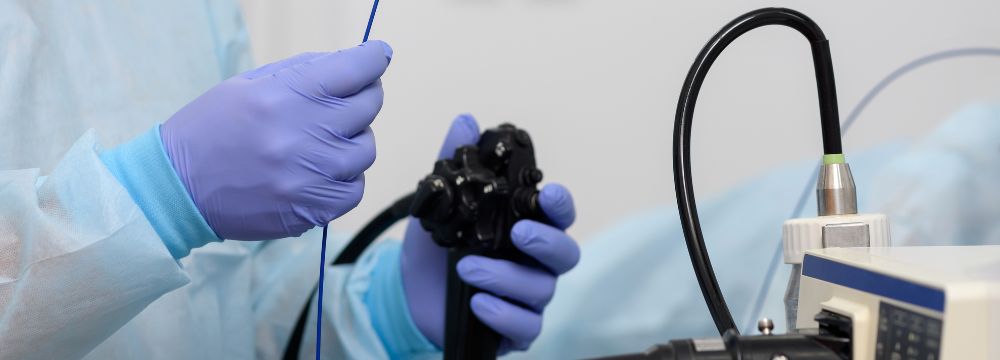
Whenever we discuss weight loss, we look for a very effective and safe procedure, medication, or solution that favorably balances results with risk. It’s one of the reasons why GLP-1 medications like Wegovy and Zepbound have been so popular. Other than a pill, these injections are as easy to prescribe and as straightforward to administer as it gets. Plus, they have good results with rare major side effects (though they do occur). As with anything, of course, there are trade-offs, and many people who take GLP-1s experience undesirable possible effects like a lack of weight loss, unacceptable muscle wasting, or eventually losing coverage for the medication. In this case, many patients may be ready for a more invasive solution, but not quite surgery – they may still think that surgical intervention is extreme.
With the advent of the endoscopic sleeve or endoscopic sleeve gastroplasty (ESG), a lot of new marketing has hit the airwaves. Plenty of spokespeople out there claim that the ESG is a kind of Goldilocks procedure – more effective than medication, especially for those who haven’t seen good results, but doesn’t go quite as far as surgery. But is this true, and what should every patient know about endoscopic weight loss procedures?
The Surgeon Matters
Yes, the endoscopic sleeve is performed non-surgically and using sutures only; the stomach can be mechanically made smaller, but the technique matters here. Unfortunately, we have seen several patients come back to our practice, looking for bariatric surgery after a failed endoscopic sleeve. As in the surgical realm, not everyone is skilled or experienced enough in endoscopy or ESG to get it right. In fact, it was hard to tell that an ESG had been performed in a couple of these conversions. So, to that end, be sure that if you choose an endoscopic sleeve, your practitioner is highly skilled and has many of these procedures under their belt.
Hormones Matter
The success of the GLP-1 medications and the significant weight loss enjoyed by gastric sleeve patients are primarily due to hormonal changes that suppress hunger. In the case of the medications, GLP-1 secretion reduces hunger pangs. For the surgical option, removing the fundus of the stomach means that the hunger hormone ghrelin is no longer produced in the quantities it once was. With the endoscopic sleeve, there is no such hormonal change. This means the patient will still feel hungry and won’t receive the same results as they would with a sleeve.
Risk
To be sure, the endoscopic sleeve is less risky than surgery. This is because it uses natural orifices instead of entering the body through the skin. The endoscopic sleeve may be the best option for patients who are not good candidates for surgical intervention.
Your mindset and postoperative willingness to change your lifestyle will separate good results from great ones. No matter what weight loss modality you choose, there’s no substitute for making that mental and physical shift after surgery, eating less, drinking more water, and exercising with cardiovascular and strength training.
Dr. Tsuda’s Take
While the endoscopic sleeve may seem like a very tempting option, especially for those who have failed medical management, my feeling is that the endoscopic bariatric procedures, at least in their current form, are only the best option for a very narrow sliver of patients that absolutely won’t or can’t have surgery but have failed other options. I’ve been trained in endoscopy, but I have yet to offer this to my patients for this reason. A regular gastric sleeve, gastric bypass, duodenal switch, or SADI are the best options for 90+ percent of my patients.
With that said, as with any surgical, endoscopic, or medical intervention, it’s essential that these decisions not be taken lightly. If, after research and consultation with a qualified professional, you believe that an endoscopic bariatric procedure is right for you, then by all means, pursue it, but do so with a very skilled and experienced surgeon.
Remember that weight loss is a life change, not just a prolonged diet. Any procedure, including bariatric surgery, is not a magic bullet. Patients need to be aware that they are embarking on a complex and lifelong journey that can be exceptionally satisfying.
The Bottom Line
While I can see the benefits of an endoscopic sleeve for a few patients, the truth is that bariatric surgery will be a better option for most higher BMI patients, those over 35 or so, while weight loss medications may be suitable for those with a BMI of 27 to 30. Ultimately, however, dedication to change will make the most significant difference. We look forward to speaking with you about any of your questions regarding endoscopic surgery. For now, however, it’s not something I intend to offer unless significant advances make it a worthwhile option for a greater cross-section of patients.
